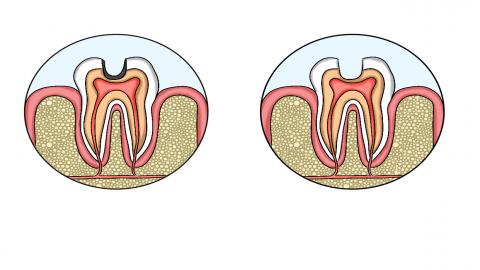Will a cavity still deteriorate after being filled?
Generally speaking, whether a tooth with a filling will deteriorate again depends on post-treatment maintenance, the quality of the filling material, and the condition of the tooth itself. If you experience any dental discomfort, it is recommended to seek medical attention promptly. The detailed analysis is as follows:

If proper oral hygiene is maintained after the filling—such as thorough brushing twice daily, rinsing after meals, regular flossing, using high-quality filling materials that fit tightly to the tooth, and the tooth itself does not have severe hypomineralization or other underlying issues—the filling typically remains stable and the tooth is unlikely to be damaged again. In this case, the filling effectively blocks external irritants and prevents bacteria from entering the original cavity, while good oral care reduces plaque buildup and helps prevent new cavities, allowing the tooth to remain healthy long-term.
However, if oral hygiene is neglected after the filling—such as inadequate brushing, infrequent flossing leading to food debris and bacterial accumulation at the margins of the filling—or if the filling material is of poor quality, has worn down over time, become loose, cracked, or developed gaps, especially in teeth with low mineralization and weak caries resistance—the tooth may become damaged again. Bacteria can penetrate through gaps at the edge of the filling, causing secondary caries, or form new cavities elsewhere on the tooth. In severe cases, this may lead to filling loss or tooth pain.
After receiving a filling, it's important to schedule regular dental check-ups to assess the integrity of the filling and detect any small problems early. Avoid chewing hard foods with the filled tooth to prevent wear or fracture of the material. Using fluoride toothpaste in daily routines can strengthen the tooth’s resistance to decay and reduce the risk of further damage. If sensitivity, pain, or loosening of the filling occurs after treatment, prompt dental care is necessary.




